Browse
African Futures Scholar Betina Lukwambe
“I came as a researcher, I am leaving as a global voice.” Meet Dr. Betina Lukwambe, Senior Lecturer at the University of Dar es Salaam (UDSM), Department of Aquaculture Technology, Tanzania.Through the program, she strengthened her communication and leadership skills, preparing her to make an impact beyond her research. ✨She expresses her thanks: “Asante sana (Thank you very much) to Michigan State University for this experience!”
By:
Baboki Gaolaolwe-Major
Thursday, Feb 19, 2026
EDUCATION
Leave a comment
Alliance for African Partnership (AAP) welcomes the largest cohort yet of African Futures Research L
Fourteen scholars from across the AAP consortium are embarking on a year-long program focused on artificial intelligence and sustainable futures
East Lansing, Michigan — Alliance for African Partnership (AAP), a consortium of ten leading African universities, Michigan State University (MSU), and a network of African research institutes, is pleased to announce the sixth cohort of the African Futures Research Leadership Program, a competitive visiting scholar initiative supporting early career researchers from AAP member institutions. This year’s cohort — the largest in the program’s history — will explore the theme Artificial Intelligence in Africa: Transdisciplinary Innovations for Sustainable Futures.
Each scholar is paired with mentors from their home institutions and MSU for one year of impactful research, professional development, including curriculum innovation, scholarly and policy writing, grant proposal development, as well as conference attendance. Scholars will engage both virtually and in person with mentors and colleagues across disciplines to co-create research that advances sustainable futures across the continent.
“This sixth cohort marks a significant turning point for the African Futures Research Leadership Program,” said Jose Jackson-Malete, co-director of the Alliance for African Partnership. “Welcoming our largest and most interdisciplinary group of scholars to date highlights both the rising demand for collaborative research leadership opportunities and the strength of our partnerships across African institutions. The focus on artificial intelligence and sustainable futures also signals how the program continues to evolve to address emerging global and continental priorities while empowering scholars to lead transformative research in their fields.”
This year’s scholars are:
Patrick Wafula Wamalwa– Agricultural Engineering, Egerton University
Evalyn Wanjiru Mwihia– Veterinary Pathology, Microbiology and Parasitology, Egerton University
Florence Ndibuuza– Higher Education, Makerere University
Evah Maina– Pharmacy and Health Sciences, United States International University – Africa
Keiphe Nani Setlhatlhanyo– Industrial Design and Technology, University of Botswana
Bakadzi Moeti– Educational Foundations, Faculty of Education, University of Botswana
Thabang Madigoe– Business Management, University of Pretoria
Sean Kruger– Economic and Management Sciences, University of Pretoria
Sphiwe Skhosana– Natural and Agricultural Sciences, University of Pretoria
Daurice Nyirongo– Open, Distance and eLearning (ODeL), Lilongwe University of Agriculture and Natural Resources
Elhadji Bassirou Toure– Mathematics and Computer Science, Université Cheikh Anta Diop
Nedson Theonest Kashaija– Water Resources Engineering, University of Dar es Salaam
Fochi Amabilis Nwodo– Property Law, University of Nigeria, Nsukka
Salimatou Traoré– English, Université Yambo Ouologuem of Bamako
The program will begin in February 2026 with virtual collaboration, followed by an in-person residency for nine of the scholars at MSU from August through December 2026, and continued virtual engagement into early 2027. Due to new visa restrictions, five scholars will participate virtually during the entire program. Scholars will receive a small grant for research, teaching, and professional development, including conference participation and publication support, as well as a stipend during their MSU residency along with visa and travel support.
AAP aims for this cohort to generate innovative research aligned with AI’s potential to contribute to sustainable development in Africa — from health and education to environment, culture, governance, and entrepreneurship — and to lay the groundwork for long-term academic partnerships and future funding opportunities.
For more information, visit the Alliance for African Partnership website.
This project is made possible with the philanthropic support of Carnegie Corporation of New York
By:
Justin Rabineau
Wednesday, Feb 18, 2026
AGRI-FOOD SYSTEMS
+6
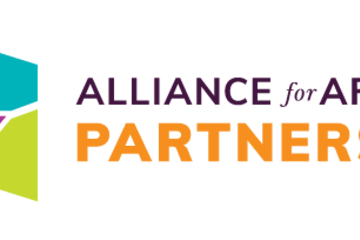
Leave a comment
African Futures Scholar Miriam Kyule
"When I go back home, I am inspired to inspire.” 🌟Meet Dr. Miriam kyule (PhD, AGED), a PhD in Agricultural Education and Lecturer of Agricultural Education at Egerton University, Kenya, and a scholar of the Research Leadership Program (Cohort 5).She reflects on her journey through the program and says: “I see this program as a platform that makes you better than coming in.” ✨🤝 Interested in connecting with Dr. Kyule and other scholars? 🎥 Watch her story and see how her journey is shaping her leadership.
By:
Baboki Gaolaolwe-Major
Wednesday, Feb 11, 2026
EDUCATION
Leave a comment
African Futures Scholar Portia Loeto
“My hope is really to shine a spotlight on Botswana.” 🌟Meet Dr Portia T. Loeto, Scholar of Gender and Cultural Studies University of Botswana_Official, Botswana.She reflects on her journey: “Collaborating with all these people is a space for me to learn, a space for me to be inspired, and a space for me to dream bigger.” ✨The program supported Portia in expanding her academic network, strengthening cross-disciplinary collaboration, and amplifying research that drives meaningful social dialogue beyond academia.
By:
Baboki Gaolaolwe-Major
Thursday, Feb 5, 2026
EDUCATION
Leave a comment
Michigan State University and the Alliance for African Partnership Awarded $895,000 Carnegie Grant
FOR IMMEDIATE RELEASE
Michigan State University and the Alliance for African Partnership Awarded $895,000 Carnegie Grant for REIMAGINE Project Advancing Graduate Education and AI in Africa
Michigan State University (East Lansing, Michigan) has been awarded a 36-month, $895,000 grant from the Carnegie Corporation of New York under its prestigious Higher Education in Africa program. The grant will support the Alliance for African Partnership (AAP) consortium’s efforts to advance innovative graduate education ecosystems across African universities and to develop a collaborative, transdisciplinary doctoral program focused on artificial intelligence.
The AAP REIMAGINE initiative supports forward-thinking strategies that reshape higher education for the future. Through this investment, AAP—MSU’s flagship platform for equitable and sustainable collaboration with African higher education institutions—will expand its work to strengthen graduate student environments, enhance supervisory and research cultures, and foster institutional systems that enable student success on the continent.
A key component of the project is the development of multiple Artificial Intelligence Doctoral Training Programs, designed to equip a new generation of African scholars with advanced AI expertise, research skills, and leadership capacity. The initiative will leverage MSU’s long-standing partnerships with universities across Africa, ensuring African-led direction, contextual relevance, and sustainability.
“The REIMAGINE Project is fundamentally about examining how doctoral education and research ecosystems across African universities can evolve to better support transdisciplinary scholarship in artificial intelligence,” said Dr. Jose Jackson-Malete, Co-Director of the Alliance for African Partnership and Project Lead for the Carnegie-funded REIMAGINE initiative. “This work is critically needed now. Without intentional investment in doctoral training, supervision systems, and collaborative research environments, Africa risks falling behind in shaping—and benefiting from—the rapid advances in AI that are already transforming societies and economies worldwide.”
Over the next three years, the project will:
Review and strengthen policies for graduate student mentorship, supervision, and research environments across AAP member institutions.
Support institutional innovations that promote student well-being, academic success, and professional development.
Launch a continentally grounded transdisciplinary doctoral program focused on artificial intelligence, expanding access to emerging fields that drive economic and societal transformation.
Foster deeper collaboration between MSU scholars and African research teams through joint programs, co-created curricula, and capacity-building initiatives.
Since its inception in 2016, AAP has worked across the consortium and beyond to promote equitable partnerships, research excellence, and sustainable development solutions. This new investment from Carnegie marks a pivotal milestone in scaling AAP’s impact on higher education transformation.
About the Alliance for African Partnership (AAP) AAP is a consortium convened by Michigan State University to promote collaborative, transdisciplinary partnerships among 10 member African institutions, MSU, and global stakeholders. The Alliance focuses on building capacity, supporting innovation, and advancing shared research priorities that address global challenges.
About the Carnegie Corporation of New York Founded in 1911 by Andrew Carnegie, the Carnegie Corporation of New York is one of America’s oldest philanthropic foundations focused on advancing knowledge and understanding through grants in education, strengthening U.S. Democracy, international peace and security, and higher education in Africa, supporting initiatives that promote civic engagement, reduce polarization, and foster global cooperation, continuing Carnegie's legacy of social progress. The REIMAGINE program supports bold, future-focused approaches to revitalizing higher education and strengthening global knowledge systems.
By:
Baboki Gaolaolwe-Major
Thursday, Jan 22, 2026
YOUTH EMPOWERMENT
+2
No Preview Available
Leave a comment
AAP Global Engagement Fund Support Arts-Based Youth Research and Engagement
When photographer and educator Prof. Peter Glendinning of Michigan State University returned to South Africa this September, his goal went far beyond presenting artwork. Supported by the Alliance for African Partnership (AAP) Global Engagement Fund (GEF), Glendinning traveled to Johannesburg and Cape Town to advance a collaborative, arts-driven research initiative that is reshaping how youth experiences are documented and understood across Africa. For years, Glendinning has been developing Attached to the Soil, a project that pairs portrait photography with metaphor and narrative to explore young people’s aspirations, challenges, and identities. What began as a 2019 Fulbright project in South Africa has evolved—through sustained partnership—into a model for how the arts can generate meaningful social insight. This work aligns directly with AAP’s culture & society priority area, which supports projects that use cultural expression to address complex societal issues.
Strengthening a Continental Research Partnership
During his visit, Glendinning met with partners at University of Pretoria, one of AAP’s 12 member institutions, including Prof. Zitha Mokomane, a professor in the Department of Sociology and Deputy Dean for Teaching and Learning in the Faculty of Humanities, who has been conducting sociological analysis of the project’s original youth-created images and stories. The findings point to recurring themes: belonging, hope, fear, opportunity, and the persistence of socio-economic barriers.
With support from the Global Engagement Fund, the partners spent their time together outlining the next phase of the work—a potential 2027 pan-African expansion that could engage youth from multiple institutions and countries. The goal is to create one of the most comprehensive collections of narrative and visual data on African youth aspirations to date.
“The dataset we envision would allow us to compare experiences across countries, contexts, and cultures, using the arts as a bridge,” Glendinning explained. The in-person meetings made possible by the GEF award were essential for refining the research design, establishing a shared methodological framework, and preparing for future proposal development.
Cultural Institutions as Crucial Partners
Glendinning’s work emphasizes not only the creation of new cultural materials but also the preservation of Africa’s photographic heritage. While in Johannesburg, he met with leaders at the Bensusan Museum of Photography to advance efforts to secure funding for preserving its internationally significant collection of historic photographic equipment and images. He also held discussions at the Nelson Mandela Foundation, which held an 8-month exhibit of the project in 2023, exploring how youth-generated narratives from Attached to the Soil could contribute to public memory and civic learning through the foundation’s ongoing partnership. These engagements expand the project’s reach beyond academia and into community and heritage spaces—an approach deeply aligned with AAP’s focus on research for broader impact.
Festival Participation Amplifies Youth Perspectives
Glendinning’s work also reached public audiences during the inaugural Cape Town Photography Festival, where Attached to the Soil opened as an exhibition at the Simon’s Town Museum. The festival setting provided a platform for deeper conversation around the project’s themes. During a public dialogue, Glendinning and Malissa Louw, one of the original participants, spoke about the creative process and the realities behind the images—drawing attention to the power of youth storytelling as a form of social documentation.
He also led two workshops: a digital photography master-class for community members and a session for 40 students at the Cape Peninsula University of Technology. Both emphasized photography as a tool for reflection, empowerment, and evidence-gathering—illustrating how artistic training can support community insight and youth leadership.
A Model for Arts-Driven, Partnership-Based Research
Following the festival, Glendinning continued planning with Prof. Mokomane during her September visit to Michigan State University, which was also supported by the GEF. Together, they are refining the concept for the multi-country expansion and identifying ways for AAP partners to contribute to the next phase.
For AAP, Glendinning’s and project and his partnership with Mokomane exemplify the role arts and culture can play in addressing societal challenges: by elevating local narratives, strengthening community connections, and deepening understanding across diverse contexts. The Global Engagement Fund is central to this impact—making it possible for faculty like Glendinning to build the relationships and shared vision that long-term, equitable partnerships require.
As plans move forward, Attached to the Soil will offer youth across the continent the chance to tell their stories—and help researchers, educators, and communities better understand the world through their eyes.
By:
Baboki Gaolaolwe-Major
Monday, Dec 15, 2025
CULTURE AND SOCIETY
+2
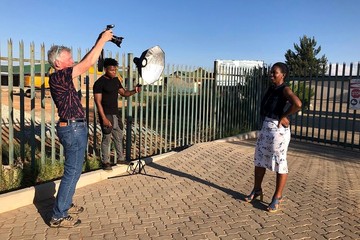
Leave a comment
AAP Steps Up Its Global Footprint at Falling Walls 2025
The Alliance for African Partnership (AAP) strengthened its global visibility this year with a significantly expanded presence at the Falling Walls Summit in Berlin, signaling a new phase in Africa’s engagement with one of the world’s leading platforms for science, innovation, and societal impact.
The momentum follows a fast-growing collaboration between AAP and the Falling Walls Foundation, an alliance that has already produced tangible results. LUANAR in Malawi became the first institution in the consortium to launch a combined Falling Walls Engage and Lab, followed by the University of Botswana, which introduced the Gaborone Lab in 2025 and is preparing to roll out the Engage program in 2026. For AAP, these developments are more than individual wins: they mark the beginning of a wider rollout across the consortium, designed to strengthen research communication and create a more connected science engagement ecosystem across Africa.
At this year’s Summit, AAP member universities made their strongest showing yet. Lab winners from LUANAR and the University of Botswana took the stage in Berlin, showcasing African innovation to an international audience of scientists, investors, policymakers, and global media. Senior leaders from across the consortium also attended, led by Michigan State University’s Vice-Provost for International Studies and Programs, Professor Titus Awokuse.
During the delegation meeting with Falling Walls’ Executive Director, Andreas Kosmider, there was clear enthusiasm about the trajectory of the partnership. Discussions focused on deepening African participation in next year’s Summit and widening the circle of collaborators to include government ministries, policymakers, and funding agencies, an effort aimed at opening new channels for African–German cooperation.
For AAP, the stakes are high. Strengthening research communication equips young African scientists to tell their stories compellingly, improving public understanding and increasing the influence of research on policy. The Labs, meanwhile, function as early-stage innovation pipelines, giving African entrepreneurs exposure, mentorship, and a global platform for emerging ideas. The partnership also enhances institutional visibility, positioning African universities as active players in global science diplomacy.
Planning has already begun for next year’s Summit, with AAP leaders working on a coordinated roadmap to ensure a more visible and more diverse African presence in 2026. The goal is not simply to attend, but to shape the agenda by bringing African voices, research, and innovation to the centre of the global conversation.
As AAP expands its Falling Walls footprint, the partnership is beginning to look less like a program and more like an ecosystem-building catalyst. It is strengthening the consortium internally, opening new possibilities externally, and giving African researchers and innovators a much-needed global stage. And if the early signs are anything to go by, the walls separating African science from global visibility are starting to crack, making space for a new era of collaboration and opportunity.
By:
Baboki Gaolaolwe-Major
Thursday, Dec 11, 2025
CULTURE AND SOCIETY
+3
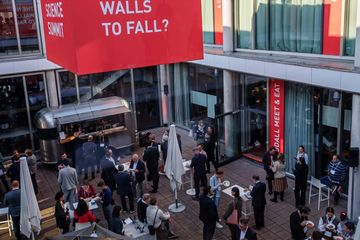
Leave a comment
Culture in collaboration: repurposing folklore for youth empowerment
Africa, particularly Nigeria, has a teeming young population who attempt to creatively navigate rapidly shifting identities within an unstable economy. For them, storytelling becomes a powerful tool through which sense is made of their place in the world. My research on folklore reimagination interrogates how traditional narratives are transformed into contemporary artistic endeavour that reflect the social realities of the youth. Folklore reimagination thus becomes an avenue for skill acquisition and empowerment in a society plagued with mismanaged resources and youth unemployment. By perceiving folklore as a living resource rather than a mere relic of the past, my research attempts to revive cultural heritage into digital content for the screen, constituting a source of self-employment for young creatives. In addition to addressing SDG number 8 – decent work and economic growth, this research fosters partnerships between culture and performance, youth and communities, tradition and modernity, and between local narratives and a global audience, offering education opportunities and reduced poverty. The research goal is to develop a toolkit which serves as both a learning and teaching aid for students and teachers of creative writing, further resonating with SDG number 4. Besides offering a platform for creativity and skills acquisition leading to self-employment, this research provides a model for a cultural engagement that is rooted in heritage preservation, shared creativity, collaboration and mutual respect. The research, which began in 2022, is divided into three distinct phases – toolkit draft, evaluation and update. Phase one involves the draft of the toolkit, which is divided into 5 parts and provides ethical insights and guidelines on working with folklore from the point of collection until reimagination. Offering mostly a theoretical guide, this phase is completed, and phase two is in progress. Phase two demands working closely with student writers to test the toolkit draft. Through a close collaboration with my students, aspects of the toolkit are currently being tested for effectiveness. Through feedback provided by the students, the toolkit will be updated with practical guides and sample scenarios. Further updates are expected following curated workshops, writers’ conference and creative labs. The creation of this toolkit resonates with the theme for this newsletter - art in partnership. Currently under the mentorship of Dr Jeff Wray of Michigan State University and Professor Chinenye Amonyeze of University of Nigeria, this research highlights that art, generally and folklore in particular, is not just a memory of set time in history, but a flexible material that can be reshaped into performances and creative narratives with social and economic value, while fostering partnerships driven by art. Folklore reimagination is, at its heart, an art of cultural partnership which depends on collaborations between researchers and creatives. By centring youths as creative agents, it leverages heritage to build skills, empowerment and self-employment. In this partnership, cultural memory is perceived and treated as a resource for innovation and economic growth. This art of partnership is therefore a sustainable one built on shared stories – stories that bear identities shaped by the past, present and future.
By:
Baboki Gaolaolwe-Major
Thursday, Dec 11, 2025
CULTURE AND SOCIETY
+1
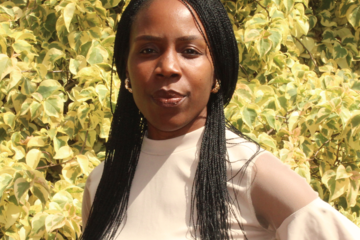
Leave a comment
2025 AAP Consortium Delegates Welcomed in Classic Warm Heart of Africa Style
Delegates to the AAP Consortium Meeting in Malawi were welcomed with a vibrant cultural reception on the afternoon of Sunday, June 8, 2025, at the Bingu International Convention Centre (BICC) Amphitheatre. The event offered a rich immersion into Malawi’s cultural heritage, from traditional dances that transported participants across the country, to rhythmic music echoing tales of generations past, complemented by a curated selection of local foods and beverages. Set in the warmth of Malawian hospitality, the reception also featured interactive activities celebrating African cultural diversity through language games and cultural lightning talks.
Reception Planning
The reception was carefully designed to celebrate cultural identity and diversity while ensuring an enjoyable and memorable experience for all attendees. Preparations began with identifying local performance groups whose artistry authentically reflects the Malawian cultural brand. Consultations with selected groups ensured a thoughtful balance of energetic and soothing performances suited to a diverse audience, ultimately creating a programme that offered a cultural tour of Malawi through music and dance. Organisers also coordinated with the hosting hotel to incorporate Malawian cuisine on the cocktail menu, showcasing the country’s culinary heritage. With the performances and menu in place, the reception hosts curated additional interactive activities to promote cultural exchange and engagement among delegates.
Performances
The Malawi National Dance Ensemble, popularly known as the Kwacha Cultural Troupe, headlined the afternoon. Established in 1987, the renowned 30-member troupe delivered a captivating sequence of traditional dances representing Malawi’s regions. Their repertoire included Beni, Chimtali, Chisamba, Chiterera, Mjedza, Malipenga, Ingoma, Mganda, Vimbuza, and Gule Wamkulu—the iconic masked dance of the Chewa people. Adding to the ambiance, Owen Mbilizi and his team offered a rich musical experience featuring original compositions and Malawian classics, blending skilled instrumentation with harmonious vocals. Delegates responded with enthusiastic applause and cheers throughout the performances.
Local Foods
Participants enjoyed an assortment of local delicacies, including mandazi, zitumbuwa (banana fritters), malambe (baobab) juice, and thobwa (sweet beer), alongside familiar continental snacks. The refreshment break provided an informal space for delegates to mingle, exchange reflections, and deepen their appreciation of the cultural showcase.
Significance
The cultural reception successfully highlighted Malawi’s artistic and culinary traditions while fostering a shared appreciation for cultural diversity among delegates. It was an afternoon filled with warmth, laughter, and a strong sense of community, the perfect icebreaker for the week’s engagements.
By:
Baboki Gaolaolwe-Major
Tuesday, Dec 9, 2025
CULTURE AND SOCIETY
+1
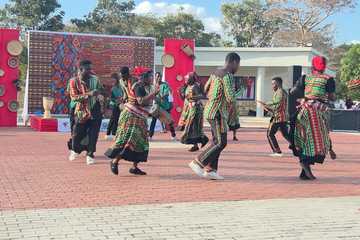
Leave a comment
From Lens to Learning: Alex Mkwizu’s Transformative MSU Journey
When Ibn Battutah said, “Traveling—it leaves you speechless, then turns you into a storyteller,” in his famous volumes Travels of Ibn Battutah, little did I know how profoundly this wisdom would echo throughout my eight-day experience at Michigan State University (MSU), East Lansing. I had the honor of attending as the overall winner of the InVision Africa Photography Competition, curated and sponsored by the Alliance for African Partnerships. This MSU initiative champions collaboration with African universities in art, culture, language, and other fields.
My time at MSU was eye-opening, filled with warm introductions to professors and artists. I met Professor Peter Glendinning from the Kresge Art Center, whose expertise in photography was inspiring; Professor Susan Wyche, who specializes in Human-Computer Interaction (HCI); and Mr Vadu Rodrigues, a Master of Fine Arts candidate, from whom I learned how his personal influences shaped his narrative and storytelling in photography. I also met many other colleagues, learning from their diverse experiences and creative processes.
These key encounters with experts and practitioners across different artistic disciplines opened doors for me to continue exploring, collaborating, and discovering new opportunities as a multidisciplinary creative artist passionate about the intersection of data, technology, and human-centered storytelling.
One of the most memorable encounters was with Professor Peter Glendinning and his body of work Attached to the Soil, a brilliant photographic project consisting of fifty portraits, oral history-based stories, and metaphoric representations of South African youth. He shared fascinating insights into his process, including an old, rare tool he once used to achieve a stroboscopic effect before the era of advanced cameras and editing software. What stood out most to me was that each photograph’s story was told from the perspective of the subject themselves, a powerful approach to narrative photography.
Another remarkable interaction was with Mr. Vadu Rodrigues and his artistic initiative Positive Africa, which seeks to challenge negative and biased narratives about Africa through photography and other art forms. Spending time with him in his studio was deeply insightful. I admired his practice of carrying a small notebook to document daily experiences and visual ideas that later influence his creative work. Observing his process from conceptualization to a finished art piece was a masterclass in intentional storytelling.
The culmination of this experience profoundly influenced my growth as a creative technologist and multidisciplinary artist. It also opened new doors for collaboration, one of which came through the MSU Museum CoLab Studio. I learned about a call for artists to create a piece exploring AI singularity in all its forms. Having subscribed to the studio’s newsletter, I received the announcement and decided to apply with a concept for a Virtual Reality immersive experience: a VR tribunal where sentient AIs bring cases against humans. Participants take the role of the defendant, while a generative AI judge, UbuntuBot, presides, modelled on African communal justice systems. The project merges storytelling, ethics, and digital futures.
As the old proverb goes, “Luck is when opportunity meets preparedness.” Fortunately, I was selected as one of the artists to collaborate with the MSU CoLab Studio, supported by a seed grant to bring this piece to life and exhibit it at the MSU Museum.
While the journey has only just begun with MSU Art Community, the experience with the Invision Africa Photography Competition and the exposure and connections made within MSU’s artistic community have left a lasting and transformative impact. It will continue to shape my creative path and remain a defining part of my artistic journey.
By:
Baboki Gaolaolwe-Major
Tuesday, Dec 9, 2025
CULTURE AND SOCIETY
+1
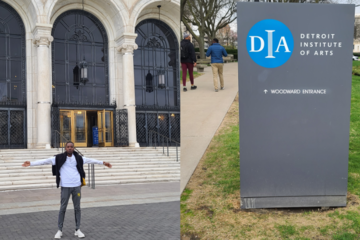
Leave a comment
Celebrating The Role of Art and Creativity in Shaping Global Partnerships
Photo by: Cris Dopher.
The arts represent the most imaginative and creative form of expression, integral to the civilizational progress of communities worldwide. In Uganda, an East African country where I originate, the arts are embodied and lived through music, dance, theatre, poetry, storytelling, folktales, and other forms of artistic engagement. The cultural, historical, social, and political meanings are etched in the art forms of the people. The arts are evolutionary and revolutionary, depicting the changes and continuities, and instigating shifts in the lived experiences of communities.
The arts have demonstrated their value in fostering community transformation across histories and territories. In Africa, the role of the arts has evolved in tandem with sociocultural, political, and economic changes in communities. The arts have offered platforms to sensitize communities around ever-emerging challenges, such as disease, climate change, conflicts, forced migration, gender-based violence, poverty, and cultural differences, among others. The functions of the arts have transcended stage performances and entertainment. Communities have deployed their creative and artistic potential to explore local solutions to prevailing problems. Within international development discourse on Africa, there is talk about ‘Africa finding local solutions to African problems’. Arts-oriented interventions that communities have applied and sustained offer a rubric on how communities in Africa can develop and implement sustainable and cost-effective solutions to local challenges.
The migratory and borderless natures of the creative arts, and their distinctiveness as a universal language, position them strategically to mediate differences, heal broken communities, quell tensions, and pluralize perspectives. The transnational and transcultural nature of the creative arts is evident in how they are constituted by cross-pollination of diverse cultural traditions, stories, and orthodoxies. The art forms are reinvented and reimagined at the intersection of other existing artistic practices. The aspect of embodiment that gives the arts their true meaning and essence centers people, as bearers of practices, meanings, and knowledge.
The global flow of art forms stems from local innovations. The being of the global dimension of the creative arts is rooted in their local value. Art proliferates by diffusion. The notion of art being born of people’s imaginaries enables its adaptation, assimilation, transcendence, and permeation across localities and contexts. Across Africa, the Black Diaspora, and global indigeneity, the commonalities between the arts demonstrate their universal reach, underscoring histories of migration, cultural connections, and intercultural interfaces.
Scholarship, practice, and research are media through which the arts have found expressions in transboundary contexts. In the realm of scholarship, collaborative research in the creative arts has increased, generating rich and diverse knowledge that has improved the human condition. The mobility of scholars and researchers between cultures and nationalities has augmented the exchange of expertise and circulation of artistic and cultural ideas and practices.
My current tenure as an African Futures Fellow at Michigan State University under the auspices of the Alliance for African Fellowship (AAP) is testimony to how the creative arts and artists can support global partnerships through scholarship and research. As a dance studies scholar at Makerere University in Uganda, East Africa, the program has supported me to connect with scholars at MSU and the US; co-write articles for publications; present at conferences; collaborate on artistic works with communities; and partner with researchers on ideation, incubation, writing, and submission of research grant ideas. Such engagements have facilitated the convergence of ideas, cultures, and people. My story represents a myriad of scholars who are leveraging the scholarly prowess of the creative arts to dissolve boundaries and dismantle barriers.
The arts have accelerated global partnerships through joint performances and collaborative creative processes. Worldwide, concerts, festivals, competitions, showcases, and productions have facilitated exchanges between artists, communities, artistic works, and audiences, and have supported the mobilization of resources through fundraising to care for those in need. The arts have been the heartbeat of globalization. Through exposure to different artistic forms, communities have peeked into cultures beyond their own. The creative arts carry a unique ability to communicate across generations, demographics, cultures, and geographies. Communities across the globe have united through the creative arts to draw attention to and amplify the voices of the oppressed.
The emergence of innovative technologies and platforms has empowered creatives worldwide to access wider audiences and listenership. Technology has democratized access and consumption of creative artworks globally. For Africa, the innovative platforms have enabled people to tell their own stories and confront stereotypical views through artistic and cultural products. Global business collaborations have emerged, resulting from the potential for the creative arts to circulate as commercially valuable products.
The creative arts possess inherent power to unite people across divides. As the world confronts challenges of conflicts, climate change, food insecurity, natural disasters, disease, social injustices, forced labour, and human trafficking, among others, the arts will continue to take center stage as strategic tools through which global communities can partner to find solutions to these problems. The creative arts have always been the heart that gives and receives.
By:
Baboki Gaolaolwe-Major
Thursday, Dec 11, 2025
CULTURE AND SOCIETY
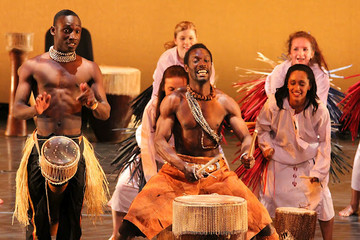
Leave a comment
Call for Book Proposals: Yorùbá Worlds, New Book Series Edited by Toyin Falola
The University of Wisconsin Press is pleased to announce the launch of a new book series, Yorùbá Worlds, edited by Toyin Falola. Publishing innovative book-length works and privileging Yorùbá voices, this multidisciplinary series is intended to answer urgent calls to decentralize colonial narratives of Africa and its diaspora and elevate Indigenous knowledge systems, oral histories, and community-centered approaches.
“The long and diverse history of the Yorùbá people, from precolonial times to today, included notable achievements in political systems, economic ties, cultural innovations, multireligious interactions, and global continuities,” says series editor Toyin Falola. “This series highlights Yorùbá voices and knowledge systems, focusing on agency and communities in both Africa and the diaspora, to deepen understanding of ongoing developments and potential related to identity, spirituality, decolonization, and transnationalism. I am excited about the opportunity to showcase and curate a wide range of innovative, cutting-edge, and multidisciplinary scholarship that offers new insights into the history, cultures, and intellectual contributions of what is perhaps Africa’s most significant and most widely dispersed group, the Yorùbá.”
The Yorùbá people have a long history of producing remarkable cultural forms, intellectual traditions, and influential historical narratives. The history of Yorùbá civilization is exemplified by precolonial urbanized city-states such as Ilé-Ifẹ̀, Ọ̀yọ́, and Ibadan, each of which had administrative structures in place. As Yorùbá people dispersed globally, their religious beliefs, languages, and cultures were foundational to forming Afro-diasporic identity in Brazil, Cuba, Trinidad, Haiti, and the United States. Yorùbá legacy, both within the African continent and among members of the global diaspora, has intensified in the contemporary period, as seen in the vibrancy of the religious expressions of Santeria and Candomblé, the explosion of Afrobeats, Yorùbá films, and transnational repatriation projects, among others.
Yorùbá Worlds is a multidisciplinary series that aims to showcase this vibrant legacy by compiling various perspectives. In addition to rigorous analyses of Yorùbá contributions to global intellectual, political, and cultural histories, the series will collapse some distance between academic inquiry and the wider world. The series will also be essential for understanding how African epistemologies continue to shape contemporary conversations about identity, spirituality, decolonization, and transnationalism.
Editor in chief Dan Crissman notes, “The University of Wisconsin Press is a recognized leader in publishing groundbreaking and essential work in African studies. We are very pleased to partner with Dr. Falola to shine a spotlight on Yorùbá history and culture.”
Series editor Toyin Falola is Distinguished Teaching Professor and Jacob and Frances Sanger Mossiker Chair in the Humanities at the University of Texas at Austin. Falola is the author or editor of more than 150 books on African history, politics, and society. He is the recipient of twenty-eight honorary doctorates from around the world as well as more than forty lifetime achievement awards.
The series advisory board includes Olufunke Adeboye (University of Lagos), Akintunde Akinyemi (University of Florida at Gainesville), Andrew Apter (University of California, Los Angeles), Matt D. Childs (University of South Carolina),Henry Lovejoy (University of Colorado Boulder), Akin Ogundiran (Northwestern University), Bola Sotunsa (Babcock University), Aribidesi Usman (Arizona State University), Olufemi Vaughan (Amherst College), and John Thabiti Willis(Grinnell College).
The first book in the series, Joseph Odùmósù’s Book of Healing, edited and translated by Michael Ọládẹ̀jọ Afọláyan and Helen Tilley, will be published in January 2026.
For more information about submissions, please contact Dan Crissman, editor in chief, at dcrissman@wisc.edu. For other inquiries, please contact the series editor, Toyin Falola, at toyinfalola@austin.utexas.edu.
About the University of Wisconsin Press
The University of Wisconsin Press is a not-for-profit publisher of books and journals. With more than 1,500 titles and 8,000 peer-reviewed articles in print, its mission embodies the Wisconsin Idea by publishing work of distinction that serves the people of Wisconsin and the world.
Contact Information
Dan Crissman, Editor in Chief, University of Wisconsin Press
Contact Email
dcrissman@wisc.edu
By:
Aaron Dorner
Friday, Nov 21, 2025
CULTURE AND SOCIETY
No Preview Available


Leave a comment